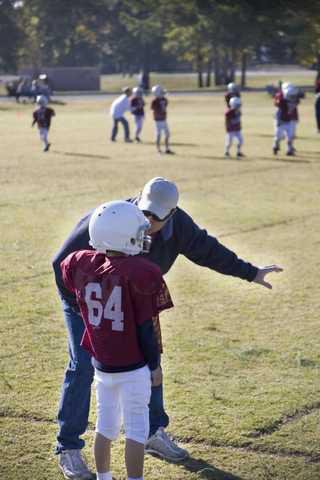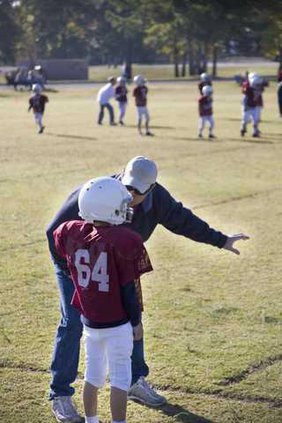Some coaches are loving and caring, and very aware of the young and impressionable children we are entrusting to them. They take their jobs seriously and can make a deep and long-lasting impression on those they coach.
Other coaches, for whatever reason, are not so kind and caring. Some are too concerned with winning or dislike a parent, and as a result, a child may suffer.
As a parent, there is nothing more difficult than dealing with a coaching situation that is less than ideal. Whether it is a coach who outright bullies using abusive and destructive language or one who chooses a more passive aggressive method, it is a struggle for many parents to know how to deal with the situation.
The following tips may be useful in dealing with a coach who bullies.
1. Talk to your child
If you suspect there may be a problem with a coach, spend some time talking to your child about practice and/or games. Ask your child about the coach's behavior and attitude. Be aware that children often idolize their coach, even if their coach is being a bully, and may become defensive when you probe for information.
If you discover there is a problem, spend some time talking to your child about what a bully is, says and does. Help your child understand that even though his or her coach is an adult, the coach's behavior is not acceptable and does not reflect on how good of an athlete your child may be. Helping build your child's self-esteem when a coach may be wearing him or her down is difficult and may require multiple conversations.
2. Talk to your child's coach
Talking to your child's coach can be difficult, especially if you don't know how the coach will react to your concerns. It is important to deal with any issues in a calm manner and not directly after a competition. Sometimes, if there has been an especially concerning incident, it may be appropriate to wait a day or two before approaching the coach with your concerns. This allows you to diffuse your emotions and be more willing to both listen and communicate effectively.
3. Use the situation as a learning experience
Sometimes talking to your child's coach will defuse the situation and allow everyone to be aware of the problem at hand. In certain instances, it can be a great learning experience for your child. Learning to deal with adults and other children who bully is, unfortunately, a skill they need to learn. If the situation is not severe, then you can help your child learn what a bully is and how to deal with them in a constructive manner. You can boost their self-esteem by reminding them that often times bullies behave the way they do for myriad reasons, very few of which have to do with your child.
4. Be more present at practice if possible
If you are still feeling concern, being more present at practice and games can be beneficial. Often, a coach who bullies will curtail his or her behavior in the presence of parents, especially if he or she is aware of a particular parent's concern. If you are unable to be more present due to family or work situations, make sure to keep an open dialogue with your child about the situation. Be sure to ask questions that require more than a yes or no answer.
Do not sit back and ignore the situation. Be proactive in pointing out behavior that is unacceptable. Your child is likely not the only one being targeted and sometimes it helps another parent feel more able to also confront an uncomfortable situation.
5. Address the issue more at end of a season
Unfortunately, some seasons are just a bust. After attempting to resolve issues with the coaching staff, and finding that your concerns are not being addressed, you may need to take an even more proactive approach at the end of a season.
Sometimes, it comes to a point where there is nothing left to do, but finish off a season. However, when it comes to the end, it is appropriate to approach the league or district president of the sport with your concerns.
Once again, doing so in a calm and respectful manner will help you convey your concerns more effectively. If you have documented certain issues, or taken note of specific incidents, behavior or practices by the coach, make sure to bring those up during a meeting, phone call or email. More often than not, the president of the league will take your concerns very seriously and will address the issues at hand.
6. Know when to call it quits
There are times when a coach's behavior is so severe that it is causing your child to withdraw and become depressed. While it is important to teach your child the value of sticking with something to the end, it is not worth your child suffering emotional abuse that may ultimately do more harm than good. If your child is showing signs of withdrawal, his or her grades are falling, or they seem more than a little reluctant to go to practice, it may be time to call it quits.
It is painful to watch a child suffer in an environment that has the potential of building his or her self-esteem and allowing him or her to thrive. When their environment becomes toxic, it is necessary for everyone involved to address the problem so that other children in the future will not suffer as well.
Stacey Meservy is the founder of HappppyMom.com and the creator of the 4 P's of a Happppy Mom. Stacey developed this strategy designed to help mothers find happiness despite the challenge of motherhood.








